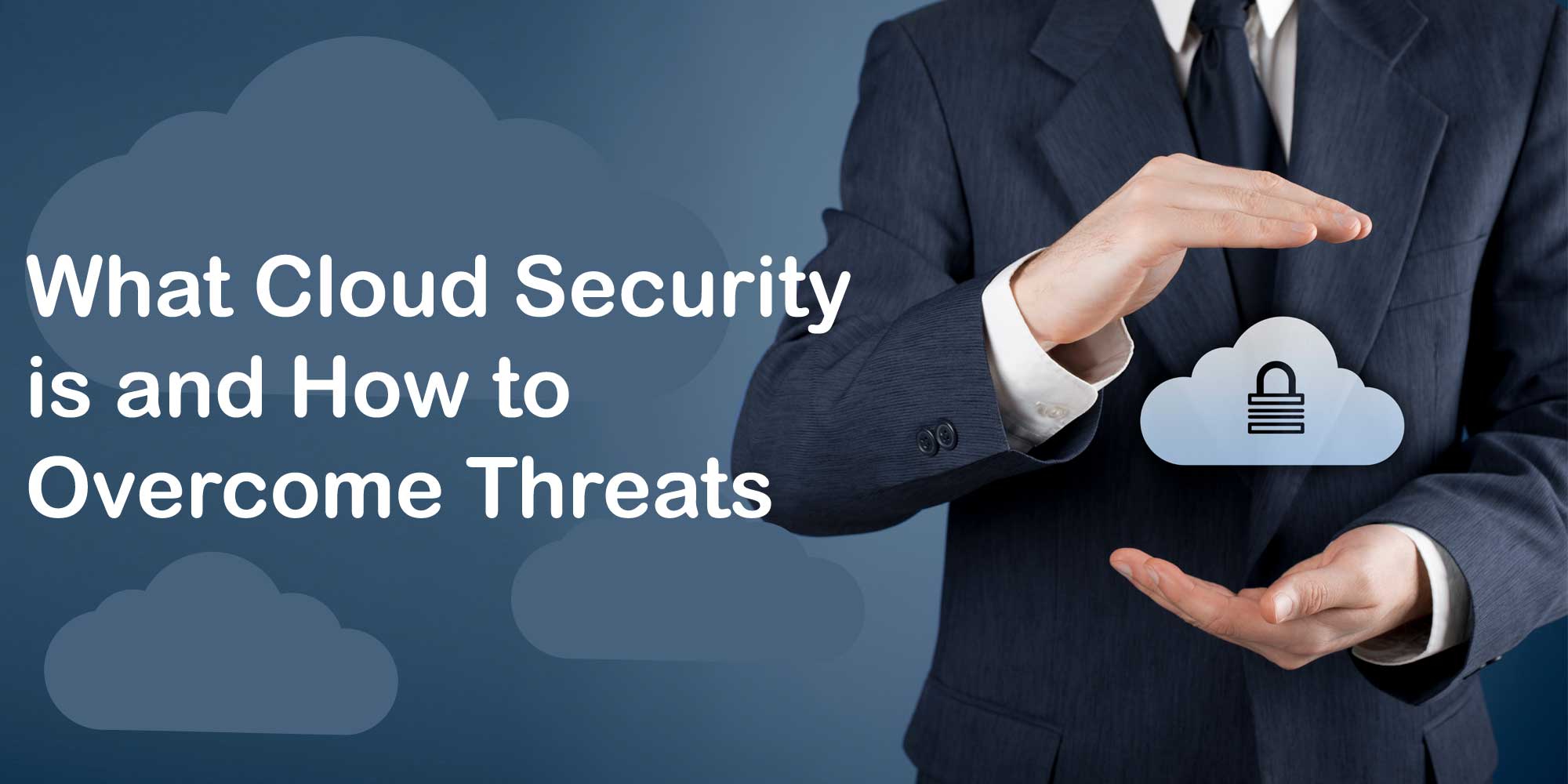In this high-tech era, nearly everything we do is digital and saved in the cloud, and cloud data is accessible from any part of the world. While the advantage of the cloud is evident, one must also take in to account the security around it. Like any other advanced technology, cloud-based applications and related data are subject to security breaches.
What Is Cloud Security?
Cloud security is be defined as: a set of technological procedures, solutions, and/or services designed, along with an array of policies, to secure and ensure a safe, functioning environment while building, deploying, and managing cloud-based applications.
Cloud Security ensures the network systems and applications are kept safe and secure when used in public, private, or hybrid cloud environments.
Data security is a vital part of cloud adoption, and companies need to adapt countermeasures that will ward off increasingly complex attacks. Cloud security defensive protocols are meant to not only restrict network usage but to ensure greater cloud agility and promote the growth of the organization all while securing business applications.
What are the Risks and Threats Involved in Cloud-Based Systems?
Though cloud applications are being adopted by small and large enterprises, making the organizations scalable and sustainable, there are many risks involved:
- Data breaches: The very icing of a cloud-based environment is data accessibility from anywhere in the world. As companies expand their digital footprint, cybercriminals like hackers have several new access points to misuse and gain control over sensitive data.
- Malware injections: Hackers can upload their malware code into the cloud servers holding a large amount of data within applications and services. If this malware code is successful in breaching the security, then the organizations, and applications operating on the same server, are at high risk of a security breach.
- Distributed Denial of Service (DDoS): DDoS attacks can be responsible for preventing customers from accessing mission-critical data and applications which can be a huge backlash for your company.
- Malicious insiders: Any previous employee or business partner who has, or had, access to the logins of cloud users and misuse those logins are considered malicious insiders.
- Advanced persistent threats (APTs): APTs are cybercriminals who infiltrate a system and remain undetected for a long period of time. Their attacks are very difficult to detect and they are known for launching invisible attacks and stealing data without setting off defensive countermeasures.
- Insecure APIs: Application Programming Interfaces (APIs) are used by customers to access and extract information from their cloud-based services. APIs hold the risk of data leaks and open access points for hackers if not configured properly.
- Account hijacking: Hackers have the ability to steal account credentials using sophisticated tools and phishing schemes. They can easily impersonate the original user and access sensitive business data.
How to Ensure Cloud Security in an Organization
Plan for Hybrid Environments
The majority of companies will have applications housed across hybrid conditions, requiring CIOs to organize security arrangements across these conditions. It very well may be enticing to depend on your cloud service supplier for security, yet that could prompt hazardous irregularities.
Distinguish security benefits that overlay various diverse, cloud-based applications and policies on board for on-premise applications.
Start with Okay Assets
As you start moving to the cloud, start with information and applications that are less mission critical. CRMs, for instance, probably won’t be as likely to suffer data loss. Until you have vetted the dependability and security of a cloud-based organization, abstain from moving high-risk resources.
Keep Up with Client Privacy
If your cloud supplier is shielding against encoded attacks, it may accidentally compromise user privacy. It is important to note that distinguishing encrypted attacks requires a lot of skill. Check with your cloud supplier to see what arrangements they utilize and whether your sensitive data will remain private.
Know What You Have in the Cloud
Your employees are likely utilizing cloud-based applications without the oversight of IT teams, leaving a path of potential weakness and information spillage. Unapproved cloud-based applications can lead to malware, representing a danger to the organization. This issue has created another place in the security space: the cloud access security broker.
Avoid Being Collateral Damage
Understand the design and security presented by your cloud supplier. Sharing computing resources/spaces can bring about blackouts all through the organization, debased execution, or denied admittance for users in specific topographies. In case you share space with the objective of an assault, you could become collateral damage. Can your cloud supplier separate assault traffic from clean traffic to prevent attacks on cotenants of a cloud stage?
Comprehend the Security Capacities of Your Cloud Sellers
As with any help class, cloud facilitating suppliers have various qualities and shortcomings. Some differences are dependent on value, others on speed, and others on security. Make certain to know the security abilities of your supplier.
Separate Security Necessities from Hosting Prerequisites
Be mindful to not let people outside the IT department take responsibility for data security. They are focused on utilizing the cloud to speed time to market and reduce costs. Security becomes an auxiliary thought. A large portion of these business groups don’t have what it takes or knowledge to survey security prerequisites.
Having a team of amazing cloud security technicians to help you overcome the challenges of cloud security is essential. CloudQ offers you a CERTIFICATION COURSE FOR CLOUD SECURITY KNOWLEDGE (CCSK) PLUS LABS INFORMATION.




